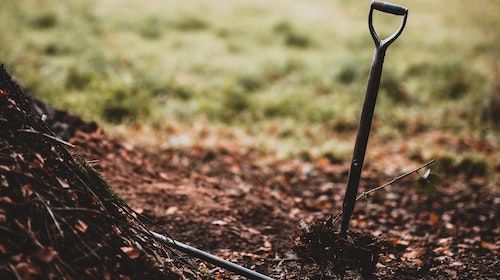
24 September 2021
On Wednesday, five of the UK’s leading regulatory bodies called for greater action and investment to reverse the decline of biodiversity by 2030. Their Nature Positive 2030 report draws on examples of good practices that exist across the UK to present solutions that can be scaled up to achieve change, including agroecological approaches to farming that improve soil fertility.
As COP26 draws nearer, a group of UK land and farming NGOs have published five ‘no regrets’ actions that governments can take during the Year of Climate Action beginning in November, such as committing to a rapid transition to sustainable farming and land use by 2030. A new farming alliance has launched ‘Countryside COP’ which will host a series of events in the run-up to COP26 to demonstrate what the industry is doing to reach net-zero.
This week at the RHS Chelsea Flower Show, Yeo Valley Organic’s garden show which placed the importance of soil at its heart was awarded the Gold Medal. Garden designer Tom Massey in collaboration with Yeo Valley's Sarah Mead created the garden to demonstrate how working with nature has wide-ranging benefits for the soil, dependent wildlife and plant biodiversity.
A new EU project, MINAGRIS (‘MIcro- and Nano-plastics in AGRIcultural Soils’), will study the impacts of plastics on soil health by undertaking experiments in 11 case studies across Europe, including one in the UK carried out by the Countryside and Community Research Institute (CCRI). The UK study will investigate the advice available to farmers surrounding plastic use in agriculture, working with UK horticultural growers and stakeholders.
Heineken UK has announced their plan to trial sustainable ways of growing barley, including inter-row cropping and cover cropping, to reduce carbon emissions and improve soil health. Outcomes will be measured by the amount of CO2 sequestered by the soil and the reduction in the amount of synthetic nitrogen added to increase crop yield.
New research explores the toxicity of tire particles on soil nematodes, revealing that the toxic effects of microplastic particles will gradually increase with higher exposure time. The study calls for further research to be carried out to ensure that the impacts of plastics in soil aren’t underestimated.
Two articles in the English press this week looked at the value of regenerative practices and the importance of soil health. One published in the Evening Standard focused on the Wild Ken Hill estate in Norfolk using a range of techniques to improve soils, store carbon, and boost nature, and another in the Guardian explored how changes in agricultural subsidies in England could encourage farmers to improve their soil health.